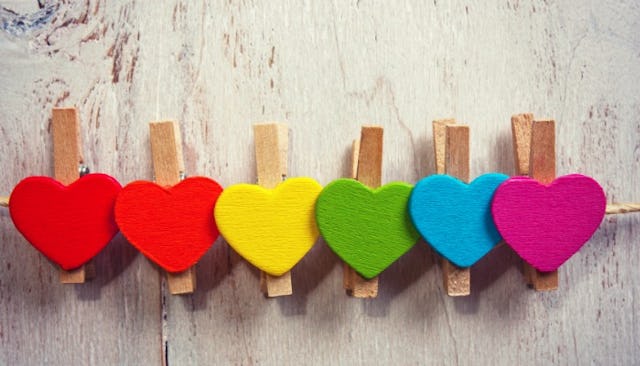How I Embraced My Transgender Parent

I no longer celebrate Father’s Day with my father. Not because my father is dead. No, my biological father is still very much alive. But my biological father is now a woman.
In case you need further clarification: The person who contributed the sperm that created the person that is me is now living as a woman. As in, the penis is gone; a vagina has been created; and this person wears makeup and girl clothes.
Did I blow your mind? I wish that wasn’t the case. I wish we lived in a world in which we fully embraced all people regardless of our own individual norms or experiences. A world in which personal expression and transformation were greeted without pause, reservation, or judgment.
At the same time, I recognize that this situation is a lot to absorb if you’ve never personally experienced it. It can take some time to make the mental leap. Much like my father took years to discover her true self, I needed time to get to where I am in my full acceptance of her transition.
I first found out about my father’s gender identity in my mid-twenties. My new husband and I went to my parents’ house to celebrate the holidays. Early in the day, my father told me, “I’d like to talk to you both privately at some point today.”
My heart cringed. Was his prostate cancer back? Was he going back into treatment? “Of course,” I gently replied.
A few hours later, my husband and I joined my father in another room. He sat us down and got right to the point.
“There’s a woman inside of me. And I cross-dress sometimes to let her out.”
My jaw dropped. I was expecting news of cancer. I was expecting talk of chemo or radiation. This, this, I was not expecting. Too stunned to respond, I sat in silence with my mouth agape.
My husband came to my rescue by saying, “Richard, we love you no matter who you are.”
“WHAT HE SAID! WHAT HE SAID! WHAT HE SAID!” my head screamed. Only my mouth sheepishly replied, “Do you have any pictures?”
My father chuckled and happily obliged because he knew, even with my foot in my mouth, what I was telling him. That I was OK. And he was OK.
I guess I mean she was OK. Her name is now Josephine. And, honestly, we really are doing OK. But it was not without some conflict in my heart and my head.
While I immediately accepted Josephine for her new identity, I also had to deal with my own feelings of loss. I worked with a therapist to examine those emotions and to understand that grief and acceptance can exist in the same space. So while I mourned the loss of my father—the loss of the grandfather to my kids and all of the other aspects of a father-daughter relationship that I thought we would have—I was still able to embrace her transition and welcome a new beginning.
Josephine, ever the engineer, described the transition in terms of computer hardware and software. While the hardware (the outside) was being changed, the software (the inside) was still the same. That’s actually a very good analogy, and one that I hope more people can relate to—so we can all come to a greater acceptance of our transgender friends and family. People should be judged on the content of their character; that’s what defines them. Josephine is a kind and generous and loving person. She is a good person.
Honestly, it’s disheartening to me to see how difficult it can be for other adults to understand Josephine’s transition. I avoid the topic with some of my friends because I’m not sure they will respond with understanding or acceptance. I’m not sure they will “get it.”
Fortunately, kids are more open, and they can process complex emotions far more easily than we sometimes give them credit for. They cut right to the important stuff. Take my daughter, for example. When she was a preschooler and examining her family tree, she asked me, “Mom, who is your father?”
I replied, “My father was a man named Richard. He was a man on the outside, but felt like a woman on the inside. So he changed his outside to match how she was on the inside. And that’s who Grandma Jo is.”
My daughter thought about that for a few moments, put her hand on my shoulder, and said, “Well, how sad. You don’t have a dad.” And then she added, “But I love Grandma Jo, and I’m happy to have her.”
Exactly. Even at age 4, she understood that there was sadness and happiness in that transformation, and that we welcome our loved ones with open arms—even when their personal experiences aren’t the same as ours.
Josephine has transformed into the person she was meant to be, and she is very happy. And I am happy for her. And just because I don’t have a father anymore doesn’t mean I don’t have a parent. I do—just a different kind of parent, a transgender parent.
But it can be difficult to celebrate my transgender parent during the Hallmark-run holiday seasons. It’s not really appropriate to honor her on Father’s Day, as she doesn’t want to be called “father” anymore. And it doesn’t feel right to honor her on Mother’s Day because she doesn’t want to be called “mother.”
What I’ve come to appreciate is that I don’t need a particular holiday to celebrate my transgender parent. That is something I can do all of the time. Because no matter her gender, she will always be my parent. And that’s something worth celebrating every day of the year.
This article was originally published on